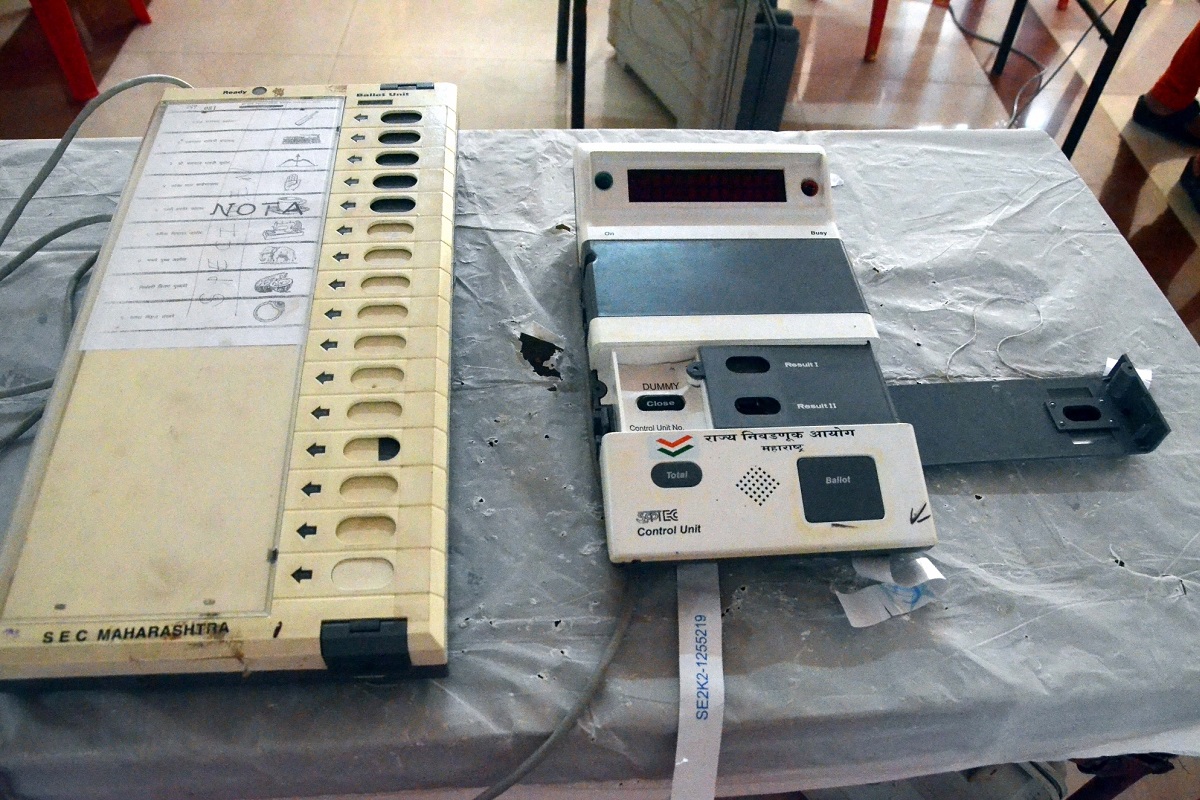SC rejects all petitions seeking 100 per cent verification of EVM votes with VVPAT slips
The top court also rejected the prayers of petitioners to return to ballot paper voting.
The court directed the EC to file an affidavit explaining why it “seemed to be fully satisfied” with the limit of VVPATs deployed in polling stations, though it did not comment on the number sought by a group of 21 Opposition parties.

Electronic Voting Machines. (File Photo: IANS)
It was a lesson in democratic “basics” that the apex court handed down to the Election Commission of India on Monday when the latter contended that its integrity was being queried by the demand (which their Lordships seemed to support) for increasing the number of VVPAT units (paper trail devices) in the forthcoming polls. It was not a question of “casting aspersions” but of seeking to provide satisfaction, the Deputy Election Commissioner, Mr Sudeep Jain, was firmly told by a bench headed by CJI Ranjan Gogoi. While the court did not say so specifically, it was apparent that it was quite irked by the authoritarian position that Nirvachan Sadan has been taking recently, in an echo that prevails elsewhere in the national capital. “No institution however high, including the judiciary, should insulate itself from improvements”, said the CJI and Justice Deepak Gupta. “We are only asking you to do a little more for the sake of purity of the elections. We would like you to increase the physical counting. This is not about casting aspersions on you, but is a question of satisfaction. Anyway, two is better than one, is it not?” Further cutting the EC down to size the court, reminded it that “it was the judges of this court that pushed you into introducing the VVPATs in the first place. If you are so conscious of improving your parameters, why did you not take the first step to introduce VVPATs in elections? Why did the judges of this court have to think for you”. And the CJI continued, “You (Mr Jain) may not have been in the Election Commission at the time, but do you know how much of opposition the Supreme Court had to face from the Election Commission to bring in VVPATs?” Mr Justice Gogoi asked.
The court directed the EC to file an affidavit explaining why it “seemed to be fully satisfied” with the limit of VVPATs deployed in polling stations, though it did not comment on the number sought by a group of 21 Opposition parties. The court was in a serious mood after the Deputy Election Commissioner had tried to make light of the doubts raised by Opposition parties. It asked to be informed of the time that would be taken to crosscheck what the EVMs recorded with a VVPAT, and when senior counsel for the Opposition offered a time-estimate the court asserted that its query was directed to the EC. Although no firm ruling was issued by their Lordships on the demand for doubling the use of VVPATS, Nirvachan Sadan ought to take due note of the observations. Seldom before has the Commission been taken to such severe task: its officials must understand that while they do wield considerable powers, they cannot treat others lightly. Accountability is integral to democratic governance.
Advertisement
Advertisement